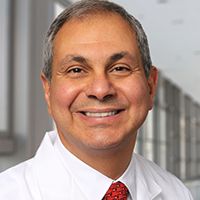Lung Fluid Monitoring Cuts Down Heart Failure Readmission in SMILE Trial
New findings from the trial show daily adherence to the fluid monitoring ReDS system dropped HF patient readmission risk by 58%.

William T. Abraham, MD
New trial data from a clinical trial designed to assess ReDS non-invasive remote pulmonary congestion monitoring for patients with heart failure (HF) found the evaluation tool was capable of helping prevent nearly 60% of HF readmissions.
The new findings from the SMILE trial, presented at the Heart Failure Society of America (HFSA) 2019 Scientific Sessions at Philadelphia, PA, featured data from the largest randomized, controlled trial to feature the Sensible Medical Innovations device to date.
The trial—following US Food and Drug Administration (FDA) approving the ReDS device for marketing—evaluated at-home use among 268 patients with HF across 43 US sites. Patients were split 1:1 to either ReDS (n= 135) or standard of care (n= 133), with a mean patient follow-up of 6.1 (±3.4) months.
Investigators, led by William T. Abraham, MD, of The Ohio State University Wexner Medical School, had recruited patients for the study during hospitalization for HF, and assessed daily monitoring managements—seeking lung fluid rates in the normal range of 20% to 35%.
Data collected and aggregated to the ReDS cloud system was sent to physicians. The primary efficacy endpoint was a rate of recurrent events of HF readmissions during the entire patient follow-up period (max follow-up period= 9 months).
Secondary efficacy endpoints included time from discharge until first HF readmission event; proportion of total days lost to hospitalization due to HF events; and time from discharge until all-cause mortality through entire follow-up period.
Abraham and colleagues reported ReDS-guided HF management was associated with a 58% HF readmission prevention rate—a significant reduction from standard of care patients—while also resulting in improved outcome measures among treated patients.
The observed findings, investigators noted, may support approach to HF readmission which entails adhered use and reimbursement of ReDS-guided management in patients recently discharged for HF hospitalization.
The SMILE results also indicate the benefit of gauging lung fluid content as a metric for HF readmission risk, Abraham said.
“"The results show that with an accurate and absolute measurement of lung fluid content, physicians have actionable information to help make treatment decisions,” Abraham said in a statement. "When ReDS measurements are taken regularly by patients and physicians use this information to guide therapy, the SMILE trial demonstrates a reduction in hospital readmissions for heart failure."
Amir Ronen, Sensible Medical chief executive officer, looked forward to further development of ReDS’ role in HF management.
“"This much data aggregated from so many high-powered centers is a huge step in showing the value ReDS can deliver heart failure patients," Ronen said. "We will continue to innovate and expand on the evidence generated with the SMILE Study."